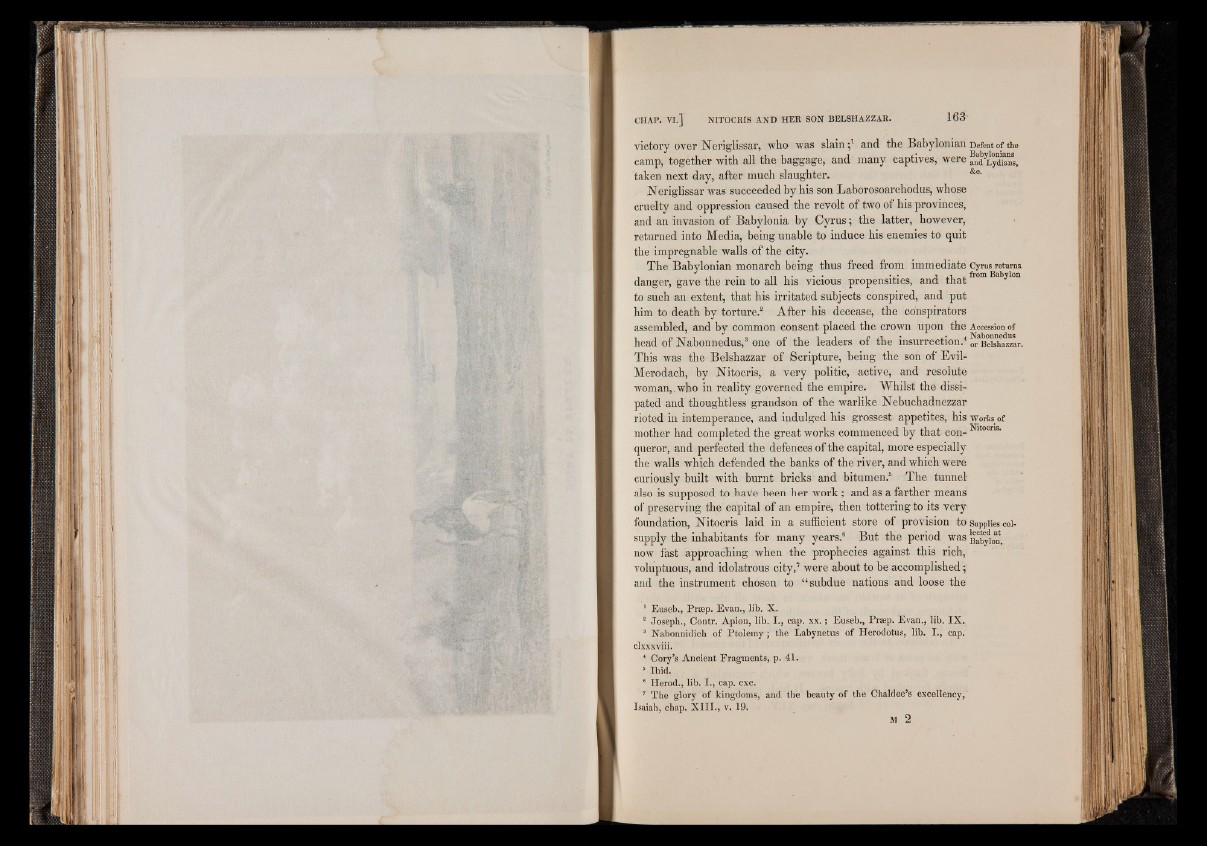
victory over Neriglissar, who was slain;1 and the Babylonian Defeat of the
camp, together with all the baggage, and many captives, were andiydians,
taken next day, after much slaughter. &QNeriglissar
was succeeded by his son Laborosoarchodus, whose
cruelty and oppression caused the revolt of two of his provinces,
and an invasion of Babylonia by Cyrus; the latter, however,
returned into Media, being unable to induce his enemies to quit
the impregnable walls of the city.
The Babylonian monarch being thus freed from immediate Cyrus returns
danger, gave the rein to all his vicious propensities, and thatfrom Babyloa
to such an extent, that his irritated subjects conspired, and put
him to death by torture.8 After his decease, the conspirators
assembled, and by common consent placed the crown upon the Accession of
head of Nabonnedus,3 one of the leaders of the insurrection.4 0rVdshazzlr.
This was the Belshazzar of Scripture, being the son of Evil-
Merodach, by Nitocris, a very politic, active, and resolute
woman,, who in reality governed the empire. Whilst the dissipated
and thoughtless grandson of the warlike Nebuchadnezzar
rioted in intemperance, and indulged his grossest appetites, his works of
mother had completed the great works commenced by that con- Nltocns-
queror, and perfected the defences of the capital, more especially
the walls which defended the banks of the river, and which were
curiously built with burnt bricks and bitumen.5 The tunnel
also is supposed to have been her work; and as a farther means
of preserving the capital of an empire, then tottering to its very
foundation, Nitocris laid in a sufficient store of provision to supplies coi-
supply the inhabitants for many years.6 But the period was Babylon,
now fast approaching when the prophecies against this rich,
voluptuous, and idolatrous city,7 were about to be accomplished;
and the instrument chosen to “ subdue nations and loose the
1 Euseb., Prsep. Evan., lib. X.
1 Joseph., Contr. Apion, lib. I ., cap. xx. ; Euseb., Prsep. Evan., lib. IX .
s Nabonnidich of P to lem y ; the Labynetus of Herodotus, lib. I., cap.
clxxxviii.
4 Cory’s Ancient Fragments, p. 41.
5 Ibid.
6 Herod., lib. I ., cap. cxc.
7 The glory of kingdoms, and the beauty of the Chaldee’s excellency,'
Isaiah, chap. X I I I ., v. 19.
M 2